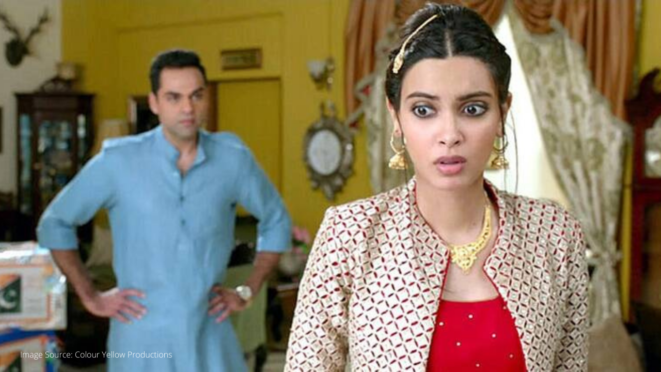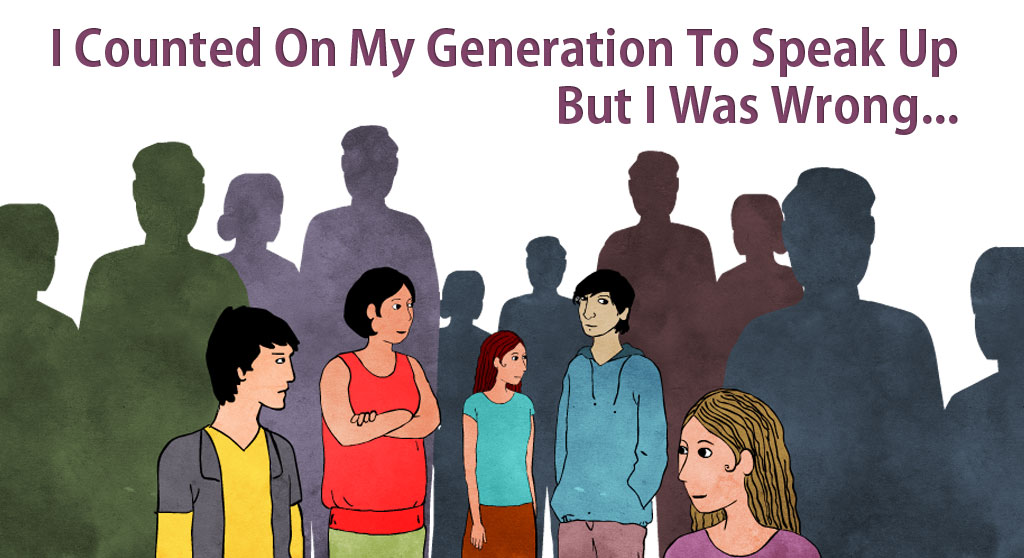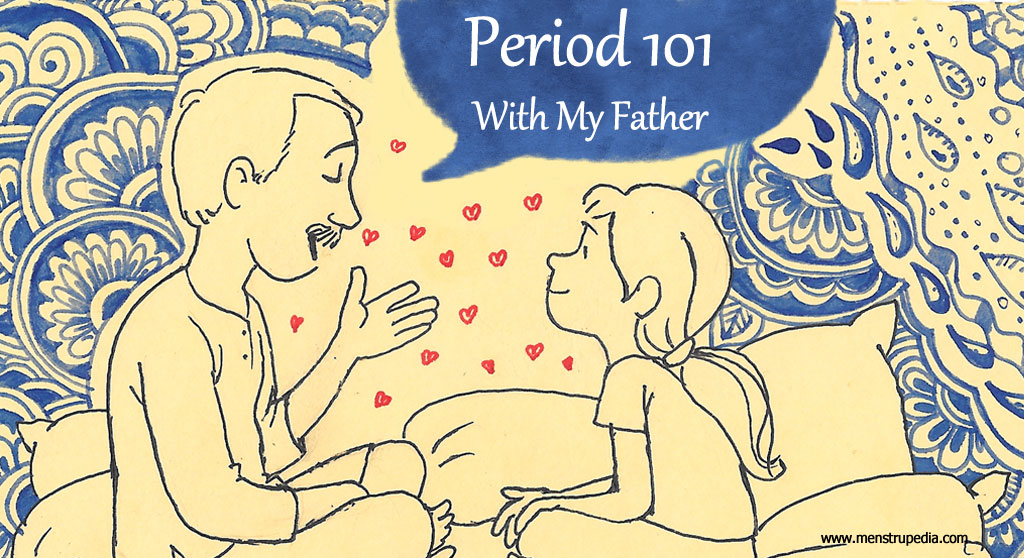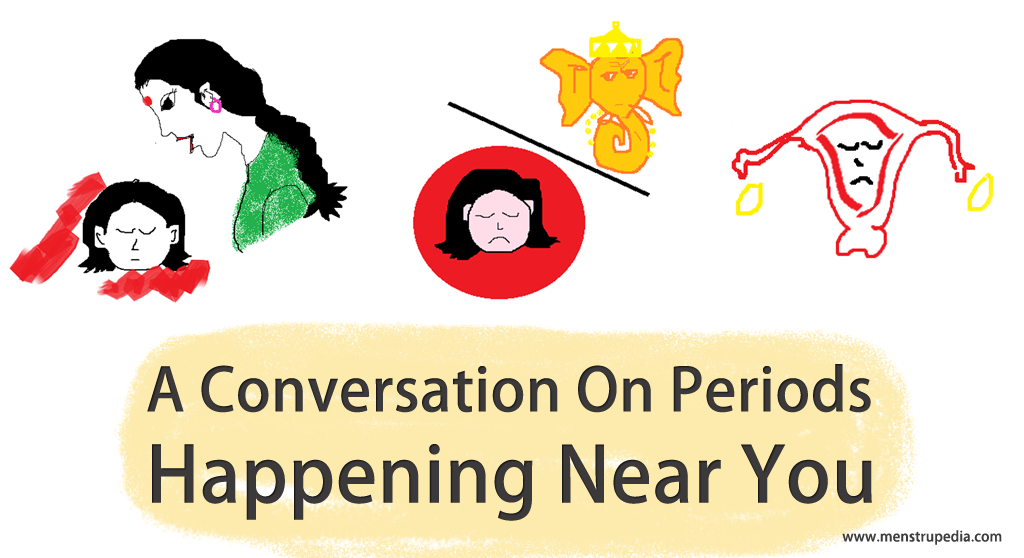This is a winning entry of our writing contest on “Periods and Mental Health” by Devshri Joshi
My period warning signs include flashes of red hot anger when my family gets too noisy in the mornings, tears threatening to spill out while watching a not-so-emotional movie and most importantly, a strong urge to throw things against the wall at the slightest inconvenience. The symptoms are not pleasant – not for me and definitely not for the ones around me, but I’m grateful for them because that’s when I know to start preparing myself for the onslaught of blood, cramps and discomfort that would probably hit in a few days.
When my periods first started when I was in the 8th grade, I embraced the rage that came along, thinking I was justified to be raging uncontrollably. Once I went to college, I realised my outbursts were not cool at all and started warning my friends about possible hormonal outbursts in the following week. I was not afraid to walk away from conversations if I felt my emotions getting the better of me but I could not avoid the emotional toll at the end of the day. Finally, when the pandemic started, I had a chance to re-examine my emotions during my periods. I realised that they are over-thetop, mostly irrational, dark, self-hating and sometimes come out in the worst possible ways. These dark thoughts have become more accentuated lately, though this might be a consequence of the general bad mental health I have been experiencing for the past 7 months.
Nonetheless, I decided I needed to figure out a way around it.
My first step was to understand where my emotions come from. I first had to accept that the incidents leading to emotional outbursts are not always trivial. These very real emotions remain unmanaged and unregulated, giving way to the famous (and extremely unwelcome) “they must be PMS-ing” comment made by friends, family, and strangers. I have had to explain to many friends several times not to casually pass of behaviour as “PMS-ing.” I have seen a friend brought to tears because of a comment made in bad taste by someone, and then that someone later saying that her feelings towards his comments are not valid since she was “PMS-ing.” I have seen my friends (myself included) apologizing again and again for having mood swings and blaming it on periods.

None of these responses are healthy. On one hand, emotional outbursts seem irrational; on the other hand, real issues remain unresolved and bottled in, screwed tightly shut with the explanation of “PMS.” Due to the constant pushing away of emotions, I realised that now I am no longer able to pay close attention to my feelings. All the insecurities I dealt with and stored away in a safe space come rushing back a few days before my periods and I have no clue how to deal with them.
For me, one of the biggest steps I have taken to resolve this issue is to identify and name my emotions. This helps me classify and understand my reactions. When I am feeling too intensely, I have the option to say “You know what? This is an issue I am going to come back to after this week is over.” The process is difficult to say the least. The saying that we take comfort in our sadness is very true and it is not easy to prevent further negative thoughts from invading my mind. It is, however, a process I felt necessary for my own personal wellbeing.
So, over the past couple of months, I have developed a sort of system. It is theoretically simple. The minute my thoughts take a dark turn, I take a step back to distract myself from thinking about them. I create a sense of control where I filter what I am thinking, thus regulating the way I am feeling. I tell myself constantly that these are feelings that need to be dealt with after my uterus is done wreaking its havoc. Funnily enough, it is very difficult to give your mental health priority when your internal monologue is in a constant cycle of self-degradation. However, this awareness of my mind and body during my periods stops excessive self-hate.
During my last menstrual cycle, I started revisiting the anxieties I had mostly resolved in therapy. For nearly 2 hours, I was immersed in a depressive state before I realised that this was taking me nowhere. So, I took a mental step back from the negativity and a step down into the present moment. I refocused all my attention on my immediate needs and comforts. I had a glass of cold lemonade, binged on Iron Man movies and read a book. I promised I would revisit the issue after my periods were done. And shockingly, those anxieties did not bother me at all afterwards. They seemed trivial and easily manageable, and I felt much more in control of myself.
Understanding how my body and mind worked before and during menstruation has been an enlightening process. I feel closer to myself and my reality every time I introspect. I have stopped trivialising my emotions and take the time (or time off) to be able to respond effectively to my feelings. While I can dismiss the intensity of emotions while menstruating, I don’t understate their validity.
At the end of the day, I still feel fatigued, less energetic and repulsed by the idea of social interaction. Mental health while menstruating is tough to deal with. The cramps, the raging hormones and uncomfortable blood flow make it seem like the whole world is against you. You may feel like fighting it every waking second. The best (and somewhat difficult) thing you can do however, is to take some time off and focus on yourself. Just put a pin in it!
Author: Devshri Joshi

Devshri Joshi is a student of Psychology. She love late nights and horror stories which is decidedly a terrible combination if the dark circles under her eyes have anything to say about it. Devshri’s current mantra is “We’re here for a good time, not a long time” which is why you might find her overly excitable about the little joys of life. IG handles – @devshri_joshi, @chai.fuelled
Edited by: Divya Rosaline







